Buffy Sainte-Marie slaps down claims she faked Indigenous heritage and says investigation into her ancestry includes ‘fabricated evidence’
Canadian singer Buffy Sainte-Marie has rejected claims she faked her indigenous heritage, insisting the investigation into her ancestry included “fabricated” evidence.
Allegations that she was born in Massachusetts to a white family and not, as she claimed, on an Indian reservation, were made on CBC’s The Fifth Estate.
But Sainte-Marie, 82, claims the network relied on fabricated stories from her brother Alan, who she says sexually abused her, and two estranged family members she does not know.
“This is incredibly traumatizing for me and unfair to everyone involved,” she said.
‘It hurts me deeply to discover that my estranged family has become afraid of me and believed these lies because of a letter I sent to protect me from further abuse by my brother.’
Sainte-Marie has always described herself as belonging to the Cree tribe, and says she was adopted as a child by a white family as part of the infamous Sixties Scoop, when indigenous children in Canada were removed from their families and adopted by white parents .
Canadian singer Buffy Sainte-Marie has dismissed claims that she faked her indigenous ancestry, insisting that the investigation into her ancestry included “fabricated” evidence.
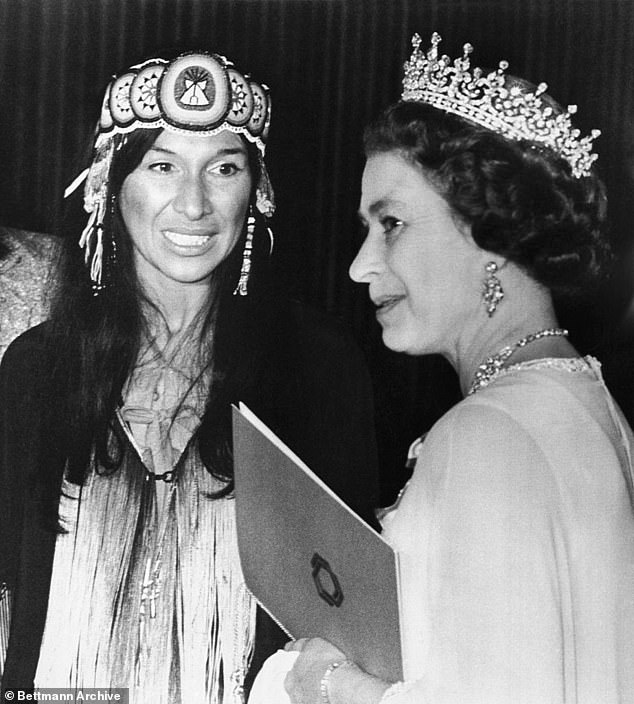
Allegations that she was born in Massachusetts to a white family and not, as she claimed, on an Indian reservation, were made on CBC’s The Fifth Estate. Pictured: Saint-Marie with Queen Elizabeth in 1977 at the National Arts Center in Ottawa
She has been a folk music icon and an Indigenous success story in Canada since she rose to prominence in the 1970s. But members of her family claimed to CBC that she is lying.
CBC also claims to have unearthed a birth certificate that traces her roots back to Massachusetts, where she grew up.
However, Sainte-Marie insists that she has never seen this birth certificate before and does not know these relatives.
‘I have never lied about my identity. The more I know, the more I have constructed a sense of self based on the information that was available to me,” she said.
“What I know about my Indigenous heritage I learned from my mother growing up, who was of Mi’kmaq descent, and my own research later in life.
“My mother told me I was adopted and that I was indigenous, but there was no documentation as was common for indigenous children at the time.
‘For decades I tried to find my biological parents and information about my background. That investigation revealed what became clear, and what I have always been honest about: I don’t know where I come from or who my biological parents are, and I never will.
“That’s why it’s painful to be questioned in this way, both for me and for my two families who I love so much.”
Sainte-Marie claimed that the evidence used to question her background was “fabricated” by her brother and then repeated by two estranged family members.
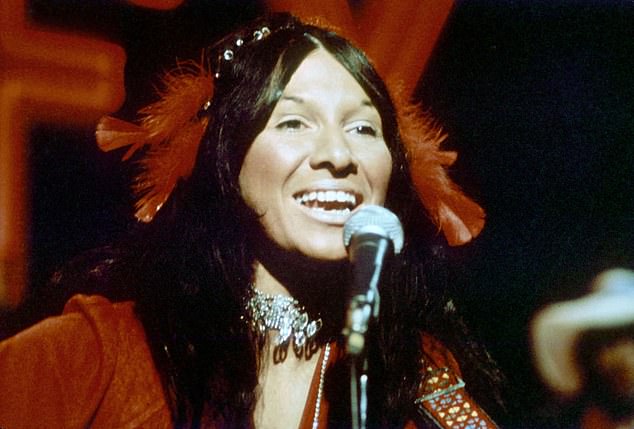
Sainte-Marie has been a folk music icon and an Indigenous success story in Canada since she rose to prominence in the 1970s. But members of her family claimed to CBC that she is lying
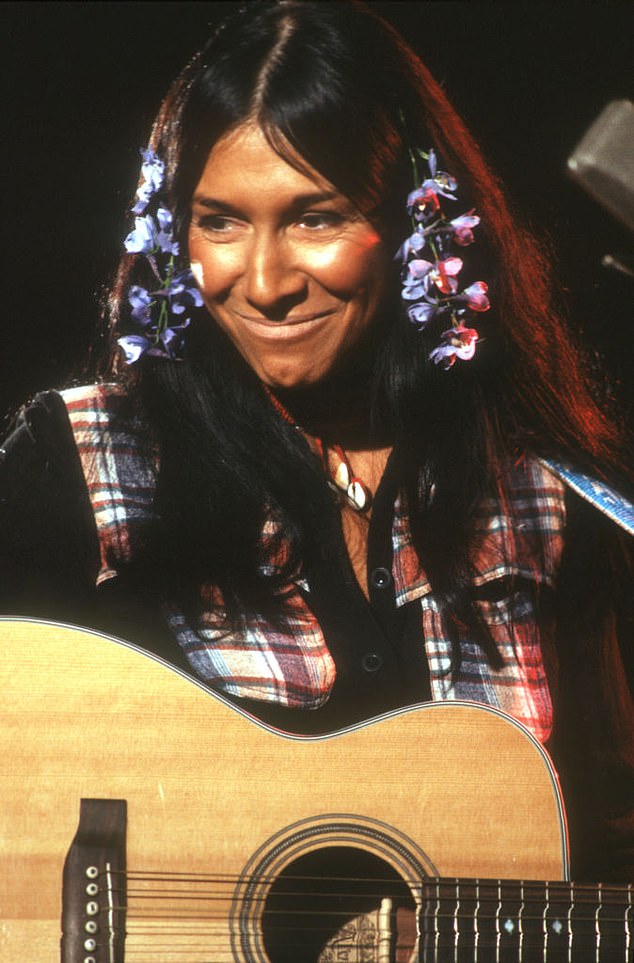
CBC also claims to have unearthed a birth certificate that traces her roots back to Massachusetts, where she grew up
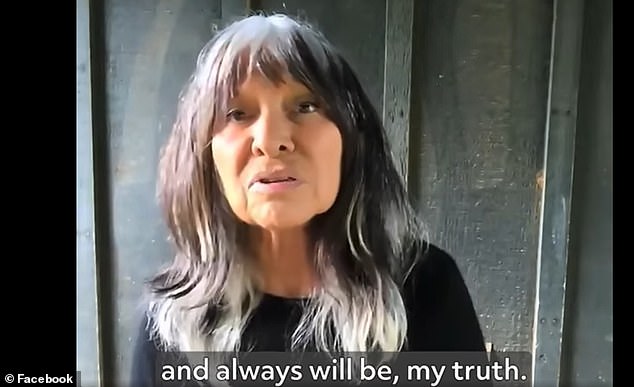
But Sainte-Marie claims the network relied on fabricated stories from her brother Alan, who she says sexually abused her, and two estranged family members she does not know.
“I want to be clear, I don’t blame them,” she said. ‘Of course they want to believe their father. “I have proof that I was sexually abused by my brother, but I cannot tolerate causing any more discomfort to his children.”
She then pointed to the birth certificate and revealed that she had a different document than the one shown in the Fifth Estate episode.
“As many Indigenous peoples know, and the National Sixties Scoop Healing Foundation of Canada has stated, it was common for birth certificates for Indian children to be ‘created’ by Western governments after they were adopted or taken from their families,” Sainte-Marie said .
“So it was quite shocking to me to hear a city clerk say that she had 100 percent confidence in its authenticity.
‘I never knew if my birth certificate was real. I used it because it was the only document I had my entire life.
“I’ve heard from countless people with similar stories – who don’t know where they come from and, like me, feel victimized by these accusations and one-sided reporting.”
She added: “Being an ‘Indian’ has little to do with sperm tracking and colonial record keeping.
“It has to do with community, culture, knowledge, teachings, who claims you, who loves you, who loves you and who your family is.”
Sainte-Marie has always maintained that she was born on the Piapot First Nation reserve near Regina, Saskatchewan and then adopted by Massachusetts couple Albert and Winifred Santamari.
She says she rediscovered her indigenous heritage later in life and became part of the community.
The CBC article suggests that her story has changed many times over the years when it comes to where she comes from.
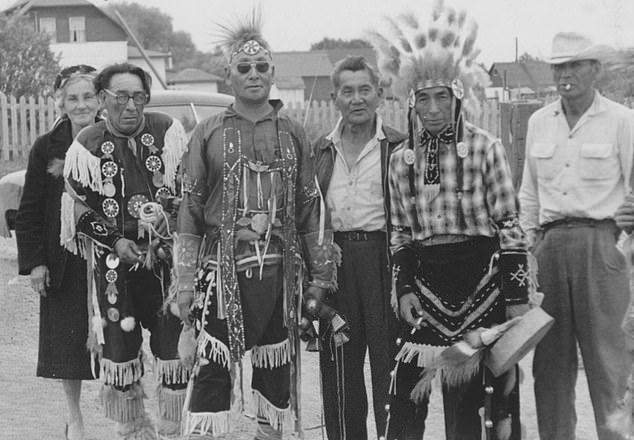
Saint-Marie posted this photo of a man she called “Daddy” on Facebook in 2021

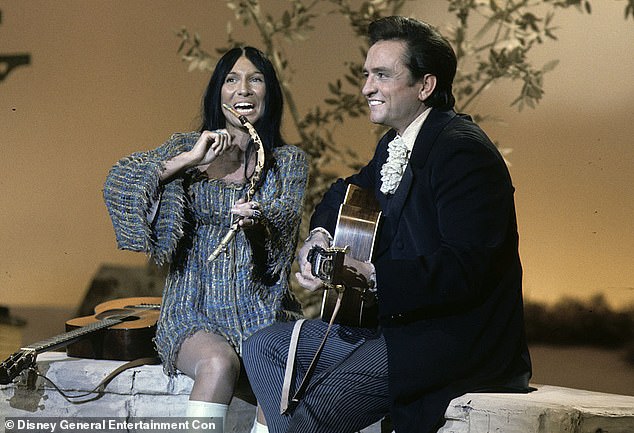
Saint-Marie with Johnny Cash during his show of the same name in 1959
Sainte-Marie’s niece Heidi – the daughter of Sainte-Marie’s older brother Alan, says: ‘She wasn’t born in Canada… she was clearly born in the United States.
“She’s clearly not Native or Indian.”
Sainte-Marie has always claimed to be part of the ‘Sixties Scoop’ or ‘Big Scoop’, when indigenous children were taken from their biological families against their will.
But CBC reports that she was born ten years before the phenomenon began.
The newspaper also cites conflicting interviews in which Sainte-Marie claims to know who her mother is and has “no idea” of her identity.
Sainte-Marie’s lawyer told CBC in an email: “At no time did Buffy Sainte-Marie personally misrepresent her origins or details of her personal history to the public.”
“Any perceived inconsistencies CBC found in Sainte-Marie’s story can be explained by the truth.”
